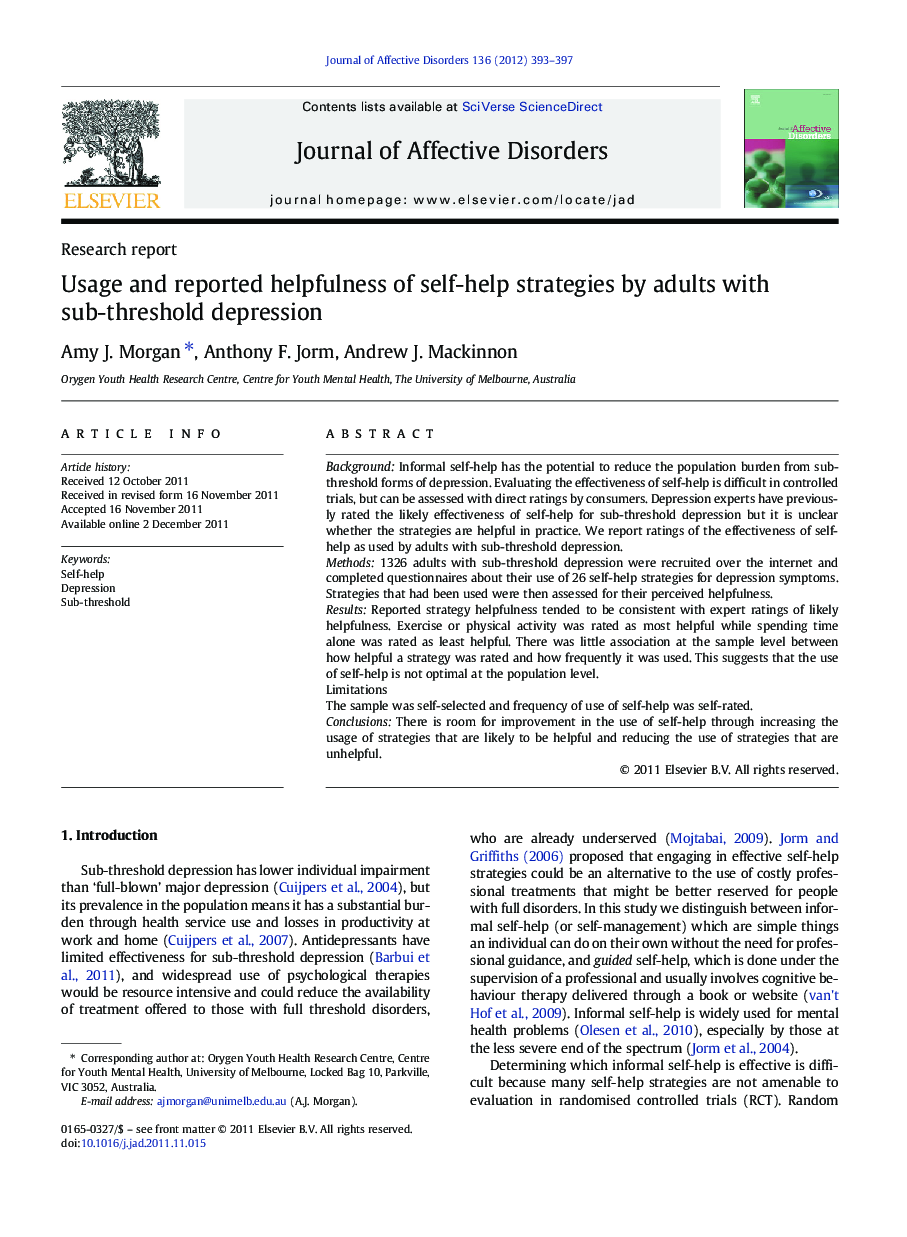| Article ID | Journal | Published Year | Pages | File Type |
|---|---|---|---|---|
| 6235365 | Journal of Affective Disorders | 2012 | 5 Pages |
BackgroundInformal self-help has the potential to reduce the population burden from sub-threshold forms of depression. Evaluating the effectiveness of self-help is difficult in controlled trials, but can be assessed with direct ratings by consumers. Depression experts have previously rated the likely effectiveness of self-help for sub-threshold depression but it is unclear whether the strategies are helpful in practice. We report ratings of the effectiveness of self-help as used by adults with sub-threshold depression.Methods1326 adults with sub-threshold depression were recruited over the internet and completed questionnaires about their use of 26 self-help strategies for depression symptoms. Strategies that had been used were then assessed for their perceived helpfulness.ResultsReported strategy helpfulness tended to be consistent with expert ratings of likely helpfulness. Exercise or physical activity was rated as most helpful while spending time alone was rated as least helpful. There was little association at the sample level between how helpful a strategy was rated and how frequently it was used. This suggests that the use of self-help is not optimal at the population level.LimitationsThe sample was self-selected and frequency of use of self-help was self-rated.ConclusionsThere is room for improvement in the use of self-help through increasing the usage of strategies that are likely to be helpful and reducing the use of strategies that are unhelpful.
